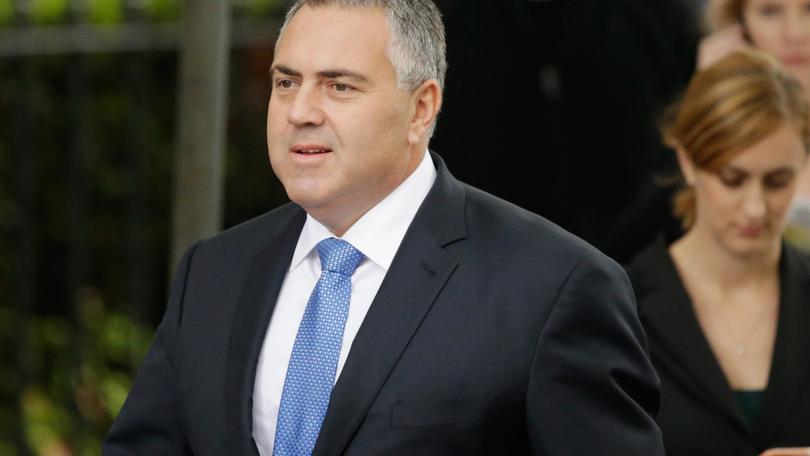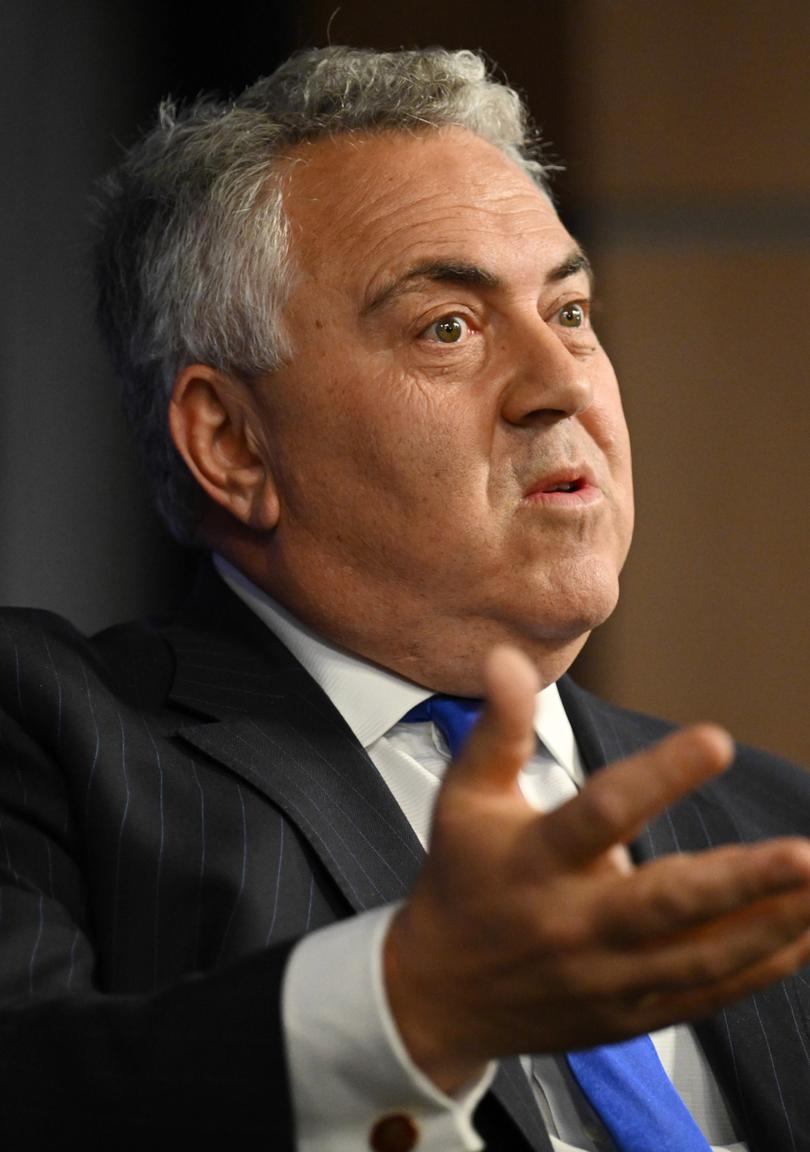Don’t have a cow, man! Former ambassador to the US Joe Hockey urges Australian farmers to hold nerve
Cattle producers have been urged to hold their nerve in the face of attacks from the US, as the beef industry looks to navigate tariff turmoil.

The former ambassador to the US, Joe Hockey, has told Australia’s cattle producers to hold their nerve in the face of attacks from President Donald Trump and mid-west senators, as the beef industry looks to navigate its trade relationship with its biggest export market.
The US accounts for 30 per cent of Australia’s beef exports, worth more than $6 billion last year but has been called out by the President as an example of unfair non tariff barriers.
Mr Hockey, a keynote speaker at the Australian Meat Industry Council conference in the Gold Coast advised attendees to keep a low profile while the tariff turmoil unfolded.
Sign up to The Nightly's newsletters.
Get the first look at the digital newspaper, curated daily stories and breaking headlines delivered to your inbox.
By continuing you agree to our Terms and Privacy Policy.The former Federal Treasurer encouraged the red meat sector to take advantage of the lower Australian dollar, hovering near its lowest level in 20 years, which would help it offset the impact of the universal 10 per cent tariff.
“Our 10 per cent, let’s take it and run with it for the moment,” he told the audience.
“Let’s not be too loud about it. The Aussie dollar has fallen. In the case of beef producers, they need our beef. You know their herd is a mess at the moment. You all know that, so let’s just hold our nerve and work out what will get a win.”
His comments come as Australian cattle farmers have again found themselves in America’s sights just five days after being singled out by Donald Trump’s as the poster child of non-tariff barriers during his extraordinary tariff address in the Rose Garden.
Overnight, a senator from Wyoming, John Barasso went on the attack against Australian farmers on Fox News, with the President re-posting the clip on Truth Social.
“Congress has given the President more and more authority on tariffs... The cattle producers are saying it is about time... Australia has sold $29 billion worth of beef in the United States, and we haven’t been able to sell one hamburger in Australia because of barriers.”
Last week, the President had called out Australian beef in his address, referring to a biosecurity ban in his list of grievances against trading partners.
“Australia... and they’re wonderful people, wonderful everything, but they ban American beef,” President Trump said.
“Yet, we imported $3 billion of Australian beef from them just last year alone, yet they won’t take any of our beef. They don’t want it because they don’t want it to affect their farmers. And you know what? I don’t blame them, but we’re doing the same thing right now, starting about midnight tonight, I would say.”
Mr Trump’s beef, echoed by Senator Barasso, is based on flawed information, the industry maintains.
“There is no ban on US beef to Australia. Australia has previously completed science-based biosecurity and food safety assessments that would allow the trade in US beef from cattle born and raised in the US,” said Australian Meat Industry Council (AMIC) chief executive Tim Ryan.
“The US, however, chose to not progress with this pathway, and instead has asked for access to Australia for beef made in the US from cattle also born and raised in Mexico or Canada. This revised request is undergoing the normal Australian science-based assessment, as is our right under global trading rules to protect our biosecurity.”
The US has an integrated supply chain that ingests 2 million cattle from Mexico and Canada into its feedlots and pastures. Cattle from those destinations is not traced, while all Australian processed beef must have a national accreditation tag.

Australian beef exports to the US have grown significantly in recent years as drought conditions have contributed to the US herd falling to its lowest level since the 1951.
That has pushed the price of beef in the US to the equivalent of $A24 a kg, while the price of Australian beef is $16.40/kg. That price accounts the currency differentials.
American consumers now account for around 30 per cent of Australian beef, primarily lean trim, used by the fast food industry. The beef industry is fond of quoting the stat that Australian beef is inside 6 million US hamburgers. The US is Australia’s largest market with China and Japan coming in second and third place.
The largest beef exporters are India, Brazil and Australia, with the US the fourth largest exporter.
Patrick Hutchinson, former chief executive of AMIC and now a trade advisor with Gibraltar Strategic Advisory has just returned from a week-long trip to the United States.
He said the relationship between Australian and US counterparts remained “tremendously strong” and said there was “no beef with beef”.
“The consumption of beef in America is growing, not contracting,” he said. “Everyone is pragmatic about this issue in regard to biosecurity. It is a well known issue and is about traceability.”
Mr Hockey said the US tariff policy was aimed at negotiating a “deal” and warned businesses who had financial exposure to the US were “negligent” and “operating in the dark” if they don’t know what’s happening on the ground in Washington.
Mr Hutchinson said that any deal with US would not come at the expense of Australia’s biosecurity.
“Australia has been the most reliable exporter in the world thanks to the way we have managed our biosecurity,” he said.
“The Prime Minister has heard loud and clear from the industry that we need to hold the line on this issue.”
While the industry is less concerned about exports to the US, believing the US consumer will be likely to absorb the price impost, a bigger concern is the ripple effect of a trade war between China and the US.
Mr Hutchinson said that the more pressing challenge for Australian would be the potential for US beef to look for new markets if China is closed off, which would impact Australian exports to Japan and Korea, who won’t be placing retaliatory tariffs.
“We are the second biggest manufacturing industry in Australia. We take a whole carcasse and disassemble it and sell the parts. China buys a lot of those parts for a specific price but Japan and Korea buy them for more.
“If the US decides to take us on in market like Japan and Korea, then we may not be getting the price,” he said.

